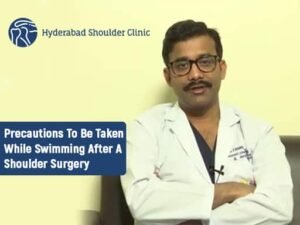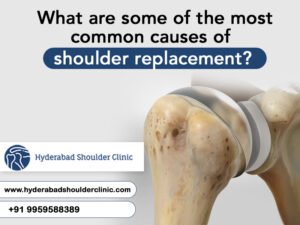It is no secret that our shoulders are among the most versatile joints in the human body. The shoulder joint can move and rotate in multiple directions and is responsible for carrying weights. The versatility of this workhorse joint makes it vulnerable to different types of injuries, from tendon tears to the most common shoulder dislocation.
A shoulder dislocation occurs when the upper arm (humerus) pops out of the shallow shoulder socket. The ball portion of the humerus bone is fixed in a shallow socket, making the shoulder joint one of the most easily dislocated joints in the body.
The ball and socket joint make the shoulder highly mobile and can move in multiple directions, which means it is unstable. Occasionally, it is also possible to tear or overstretch the surrounding tissues that support the shoulder joint. Once the shoulder has been repositioned, a dislocated shoulder will heal in about 12 to 16 weeks.
The Causes of a Dislocated Shoulder
As discussed above, a shoulder dislocation happens when the humeral head is dislodged out of the glenoid socket, either partially or completely. Shoulder dislocation is more likely to happen due to an injury than anything else — especially among athletes who play contact sports like football, rugby, cricket, and gymnastics.
It can also occur due to falls, collisions, and vehicle accidents. The risk of shoulder dislocation is also high in people performing repetitive actions over time in certain sports like tennis, golf, cricket, and swimming. In occupations that force the shoulder to perform repetitively, such as painting, construction work and lifting, the same is observed.
Post-surgery checklist for a quick recovery result
In addition to the specific instructions, you will also receive guidance according to the type of surgery you have had. You may need to follow the below general checklist following your surgery:
- You should take pain relievers and other medications according to your doctor’s instructions. It is recommended to take pain-relieving medications with food. Pain medication should be taken only when necessary after surgery for the first 48 hours.
- Avoid drinking alcohol, driving vehicles, or operating machinery that involves the shoulder for the first 24 hours following the surgery, as sedatives and anaesthesia may affect you for the first 24 hours following the surgery.
- Swelling can be managed with ice packs. Don’t apply ice directly; ensure that the ice is wrapped in a soft cloth or use ice bags. Applying ice packs for the first 48 hours after swelling is advisable, or even later if necessary.
- Make sure you follow any specific restrictions on activity that have been advised to you. The easiest way to manage pain is to prevent it from developing first rather than managing it. Rest is important following surgery, precisely for the first few days, and ensure the operated arm is elevated above the level of your heart to keep swelling under control.
- The dressing should be kept clean and dry so the wound can heal properly.
- One or two days following surgery is an ideal time to begin physical therapy. During the first week, joint motion is usually regained through exercises. Exercises intended to increase the strength of the muscles are introduced later. Regular exercises are critical for a successful outcome.
- Don’t drink alcohol or caffeine, and eat a healthy diet.
- As advised by your doctor, schedule your follow-up appointment. They are important because the surgeon evaluates the progress of your recovery.
Following surgery, if you notice any of the symptoms mentioned below, consult your doctor immediately.
- higher than usual discharge from the wound
- excessive redness surrounding the surgical site
- inflammation that has increased and cannot be reduced with ice & elevation.
- foul smell
- high Fever (more than 101°F)
- coldness or a numb feeling
- Pain all of a sudden in the cuff muscles.
- pain in the chest
- breathing difficulties
If you have any shoulder problems, consult Dr Chandra Sekhar, one of the best shoulder surgeons in Hyderabad. He has nearly two decades of experience as a shoulder specialist and has helped thousands of people with different shoulder problems. For an appointment with the doctor, call 99595 88389 and book your slot.





